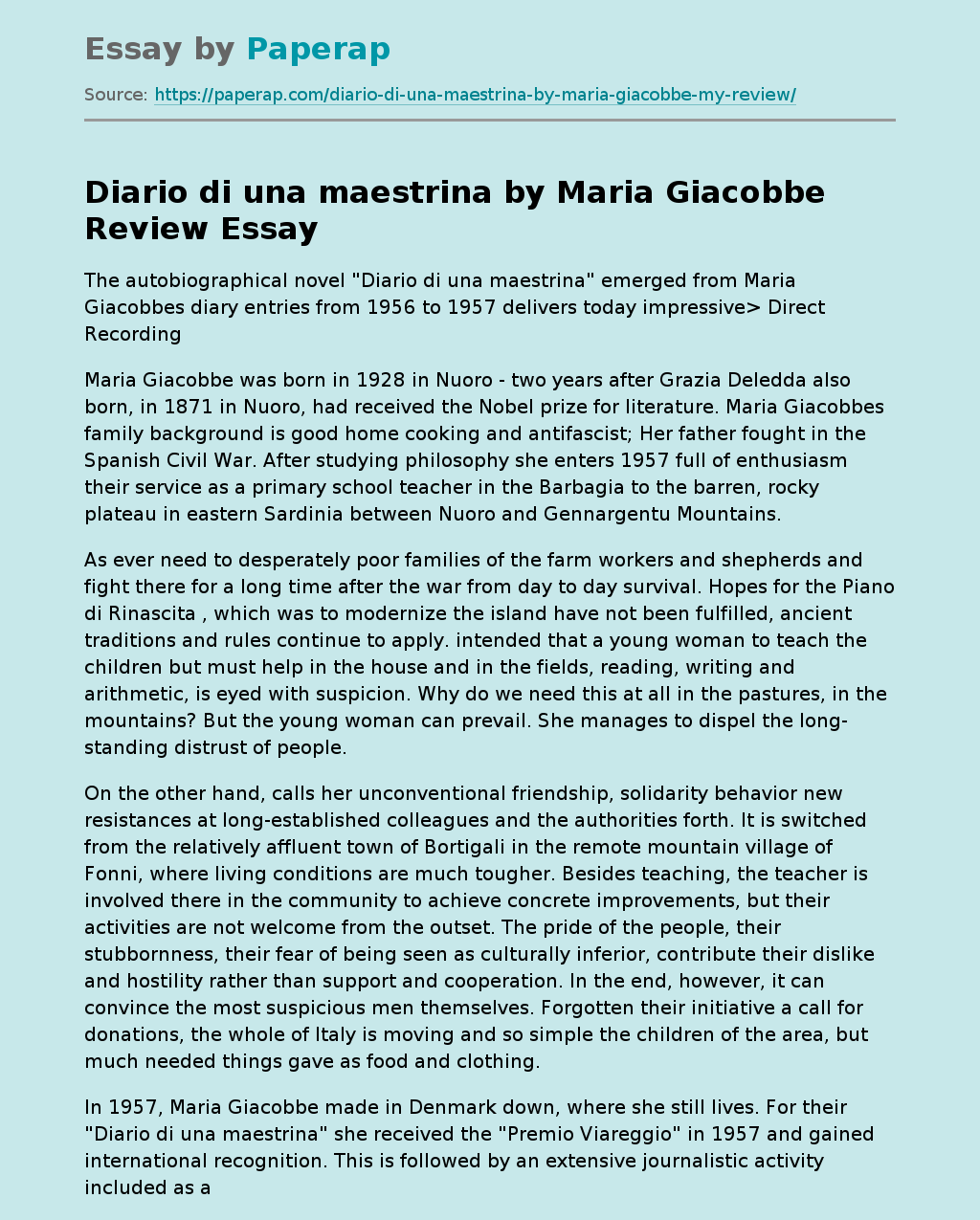Diario di una maestrina by Maria Giacobbe Review
The autobiographical novel “Diario di una maestrina” emerged from Maria Giacobbes diary entries from 1956 to 1957 delivers today impressive Direct Recording. Maria Giacobbe was born in 1928 in Nuoro – two years after Grazia Deledda also born, in 1871 in Nuoro, had received the Nobel prize for literature. Maria Giacobbes family background is good home cooking and antifascist; Her father fought in the Spanish Civil War. After studying philosophy she enters 1957 full of enthusiasm their service as a primary school teacher in the Barbagia to the barren, rocky plateau in eastern Sardinia between Nuoro and Gennargentu Mountains.
As ever need to desperately poor families of the farm workers and shepherds and fight there for a long time after the war from day to day survival. Hopes for the Piano di Rinascita , which was to modernize the island have not been fulfilled, ancient traditions and rules continue to apply. intended that a young woman to teach the children but must help in the house and in the fields, reading, writing and arithmetic, is eyed with suspicion.
Why do we need this at all in the pastures, in the mountains? But the young woman can prevail. She manages to dispel the long-standing distrust of people.
On the other hand, calls her unconventional friendship, solidarity behavior new resistances at long-established colleagues and the authorities forth. It is switched from the relatively affluent town of Bortigali in the remote mountain village of Fonni, where living conditions are much tougher. Besides teaching, the teacher is involved there in the community to achieve concrete improvements, but their activities are not welcome from the outset.
The pride of the people, their stubbornness, their fear of being seen as culturally inferior, contribute their dislike and hostility rather than support and cooperation. In the end, however, it can convince the most suspicious men themselves. Forgotten their initiative a call for donations, the whole of Italy is moving and so simple the children of the area, but much needed things gave as food and clothing.
In 1957, Maria Giacobbe made in Denmark down, where she still lives. For their “Diario di una maestrina” she received the “Premio Viareggio” in 1957 and gained international recognition.
Diario di una maestrina by Maria Giacobbe Review. (2019, Nov 18). Retrieved from https://paperap.com/diario-di-una-maestrina-by-maria-giacobbe-my-review/

